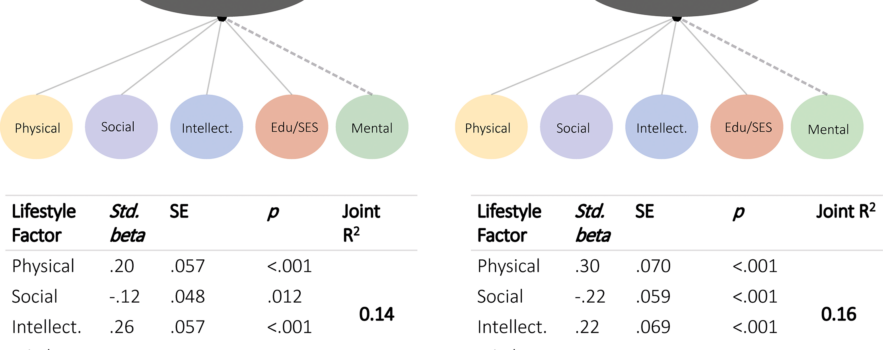We looked at five separable aspects of people’s lifestyles, such as physical and intellectual engagement, and investigated their relationship with crystallised and fluid cognitive abilities. All lifestyle factors significantly predicted age-adjusted cognitive abilities when tested separately. However, when testing simultaneously the independent contributions of different lifestyle factors to cognition, we saw a different pattern, with mental health not making a significant contribution above and beyond the other four lifestyle factors. Our paper highlights the importance of differentiating what we mean by ‘lifestyle’, and of applying sophisticated statistical tools to further understand the complex relationship tween peoples lifestyle choices and healthy cognitive ageing.


 Cambridge Centre for Ageing and Neuroscience
Cambridge Centre for Ageing and Neuroscience

